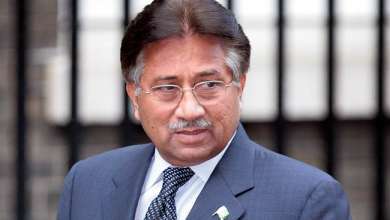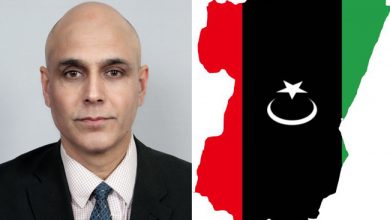Kashmir Conflict: An inextricable link between human rights violations and genocide

Juan E. Mendez, a former UN special adviser on the Prevention of Genocide argues that addressing human rights violations and preventing their escalation is crucial in stopping the slide towards genocide. Hannah Arendt in her book ‘The origins of Totalitarianism’ explores how the abrasion of human rights and the denial of basic freedoms can create a ground for the rise of totalitarian regime. Arendt’s book highlights the endangerments of ideologies that seek to create a homogeneous society by repressing dissent. By looking at the rising Hindutva ideology in India, we can see parallels of potential dangers of extremist ideology and the erosion of democratic norms and values. The extreme ideologies pose threat to democratic existence and starts discriminating or marginalizing against a certain group. And this highlights the progression from marginalization to full scale genocide.
We live in an era where nation-states overtly commit and practice human rights violations. The disempowering and disenfranchising of occupied one’s is accustom and acquaint of the occupiers. The protraction of human rights violations by occupiers could serve as a precursor to process leading to genocide. Despite scathing indictment, occupiers continue to commit human rights violations that can lead to genocide.
Gregory H. Stanton a prominent scholar of genocide studies and human rights advocate has stated that the stages of genocide are predictable but not inexorable. This statement highlights the fact that genocide can be anticipated and prophesied but it doesn’t mean that it’s inevitable. The increasing human rights violations in occupied Kashmir could potentially lead to genocide. The occupied Kashmir has been under India’s illegitimate and illicit occupation since seventy six years. It’s status in the occupied territory is nothing more than an occupier and usurper. Their inhumane treatment and atrocities have made an escalation in human rights violations. This increasing violence depicts signs and processes that genocide could take place in occupied Kashmir.
As this year marked the seventy fifth commemoration of the adoption of the Universal declaration of Human rights and Genocide Convention. The combat of disinformation of fake normalcy in Kashmir’s dangerous information desert is pivotal for reviving their indigenous resistance against occupation. From bygone civilizations to the modern era, the concept of human rights has evolved, expanded, and distended. Cyrus the great, the founder of the Persian empire had a groundbreaking approach to human rights. He implemented the worlds first human rights charter. The code of hammurabi in ancient mesopotamia, the magna carta, the American revolution, and the French revolution laid the foundation of the individual liberties. Then, the end of the world war II led to establishment of the United Nations, which adopted the Universal declaration of Human Rights in 1948. Despite the striking progress in the evolution of human rights, human rights violations still persist in contemporary era.
There is an inextricable link between Human rights violations and Genocide. As persisting human rights violations can serve as precursors to process leading to genocide. Human rights violations encompass a range of subjugative and abusive patterns including discrimination, forced disappearances, torture, extra judicial killings, denial of basic rights, implementation of draconian laws. These violations target specific population and then they create a environment of escalation of violence leading to process of the genocide. Since 2014, the BJP government has taken a number of administrative, demographic and electoral steps to practice egregious and repression on Muslims of the occupied territory with impunity.
Nonetheless, the occupied territory has seen violent suppression for over seven decades, Delhi’s illegitimate unilateral action on Aug 5, 2019, opened a more barbaric chapter in Kashmir’s subjugative history. It has been striving for mitigation and eradication of the indigenous movement of right to self-determination of the Kashmiri Muslims. The illegitimate demographic changes, implementation of draconian laws, Hindunization and Indenisation of Kashmiri culture drastically altered the sociopolitical and economic landscape and impacted the people of occupied kashmir in their day to day lives.
However, BJP has its roots emerging from the RSS, their mutual relationship and shared ideology have same endeavors of hegemonic claims and materialization of Hindutva ideology. By looking at the historical events of the Kashmir, it is to be noted that under the prejudiced and hostile policies of the Dogra rule, the rights of Muslims were suppressed. Later on, this hatredness led towards the genocide of Muslims in Kashmir. The forgotten Jammu genocide explicitly reflects the process of the genocide. In 1947, thousands of Muslims were exterminated and slaughtered in Jammu region by Sanghis (Hindus and Sikhs) led by the army of Dogra ruler Maharaja Hari Singh. In order to estimate the death toll in the field of Jammu The Times London reported on August 10th, 1948 that 2,37,000 Muslims were exterminated in systematic and organised pattern. The impetus behind this process lies in the Hindutva ideology and hegemonic assert of RSS. In this way, Muslim majority region of Jammu was converted to (61% Muslims) Muslim minority region of Jammu.
As according to Gregory H. Stanton, Genocide is not an event rather it is a process. Genocide develops in eight stages that are predictable but not inexorable. These eight stages are classification, symbolization, dehumanization, organization, polarization, identification, extermination, and denial. India’s Kashmir policy depicts these stages. In this regard, the process of genocide could happen again. Because India has been trying to legitimise it’s illegitimate occupation in the occupied territory. The extremist, fascist, and aggressive nature of BJP’s government Kashmir policy depicts the menance and peril of materialization genocide of Muslims.
In the first stage of genocide, classification of the population took place i:e division of the population into racial, religious, and ethnic groups. In the occupied Kashmir, the fascist Modi regime has promoted the religious divide. The native Kashmiri’s have been subjugating in their own land and Hindunization of Kashmiri culture is at zenith. In addition, symbolization has also become part of Modi’s Kashmir policy. Furthermore, dehumanization is consistent part of Indian military strategy to abuse indigenous Kashmiri’s. The organization is another stage that is responsible for planning of the action.
The next stage is polarization and in this stage further division is promoted. In the case of occupied Kashmir, BJP government is promoting polarization by materialization of Hindutva ideology. In the preparation stage further planning of suppression, hatred, and ethnic cleansing took place. Then, during the extermination stage genocide is practiced and the last stage is denial in which perpetrators attempt to cover up their crimes. The stages of genocide are not inexorable. Because States prefer their material interests over normative role. In this regard, the inclination of states towards their economic, strategic, and political interest led them to not take any practical action against such processes.
Escalating human rights violations and religious polarization provides ample warning for what is in store for the future of New Delhi’s democracy and secularism. It segregates the nation into ‘us’ and ‘them’, and disposed off Indian nationalism in favour of Hindu nationalism. Perhaps, its illegitimate occupation of Jammu and Kashmir with increasing cases of human rights violation is most abhorrent, repugnant, and deeply offensive act. The universal declaration on the human rights and the convention on the prevention and punishment of the crime of genocide provides guidelines for the upholding of the human rights. Their practical implementation in the global political dynamics is strenuous and arduous because states prefer their material and national interests over normative and standardizing roles. In this way, the escalation of subjugation of human rights in the occupied Kashmir could serve as precursor to process leading to genocide. As there is an inextricable link between human rights violations and process of genocide. Achieving a completely harmonious and inclusive system seem like a Utopian ideal but, international community should strive for the progress of harmony and inclusivity. The people living under occupation and siege should have their rights protected. As international human rights day serves as a reminder that human rights are universal, inalienable, indivisible, interconnected, and interdependent.
The writer is the student of UAJ&K IR department and former Intern at Kashmir institute of international relations. She could be reached at somaaslam410@gmail.com





